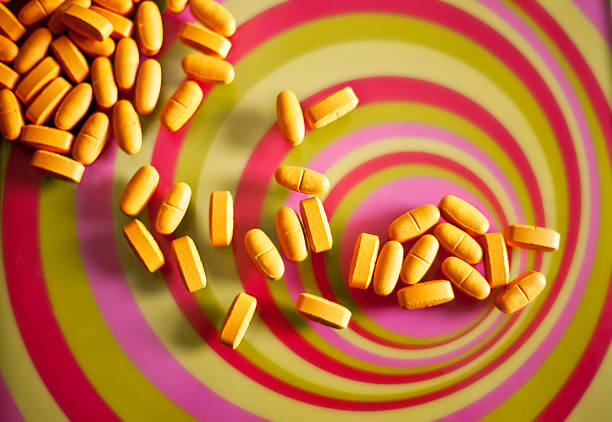There has been an increasing interest in using psychedelics to treat mental health conditions, particularly for conditions that have not responded well to other treatments. Some studies have shown promising results for using psychedelics to treat depression, anxiety, and post-traumatic stress disorder (PTSD).
Overall, the attitude toward the use of psychedelics for the treatment of mental health conditions is mixed. Some people believe that these substances have the potential to be useful treatment options, while others are more skeptical and believe that more research is needed before they can be used clinically. It is important to note that using psychedelics is currently illegal in most states and should not be used outside of a clinical setting.
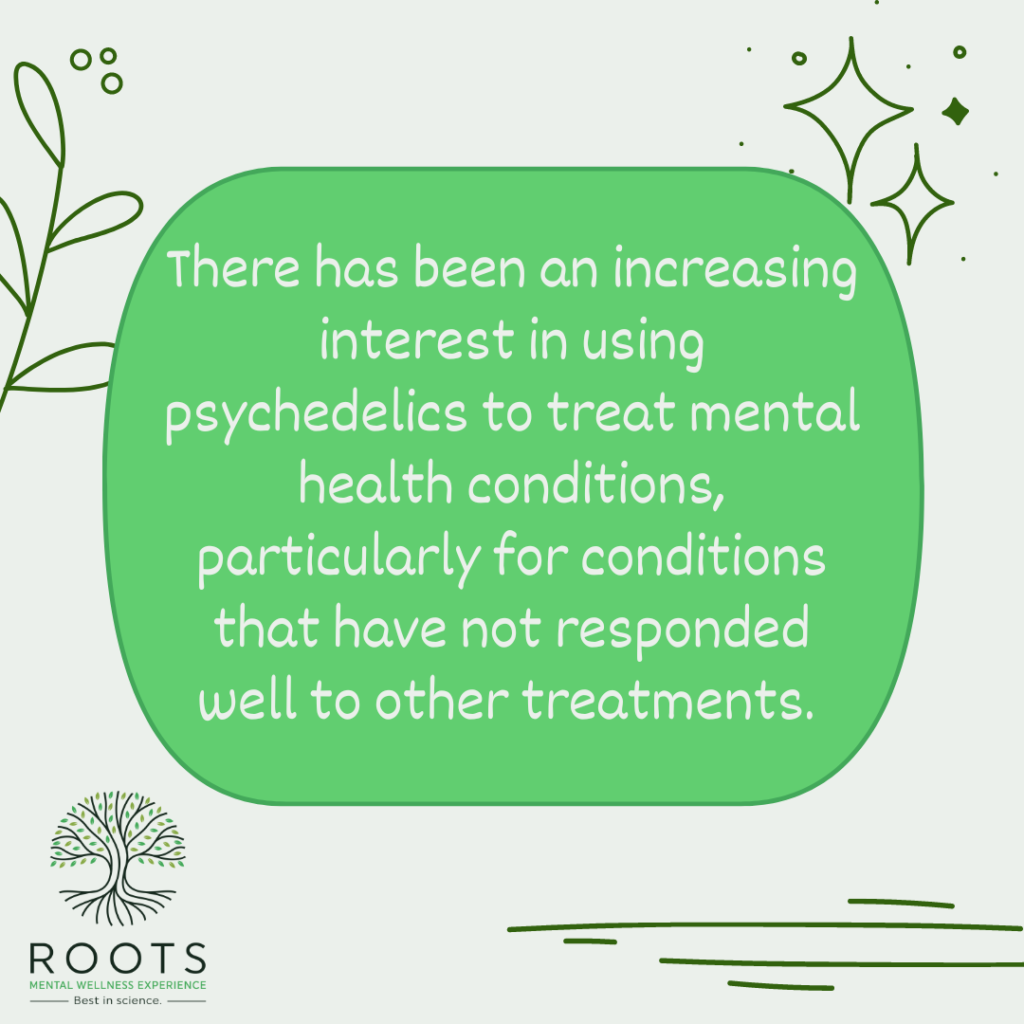
MDMA-Assisted Psychotherapy for PTSD
MDMA (3,4-methylenedioxymethamphetamine), also known as “ecstasy” or “molly,” is currently being studied for its potential use in the treatment of post-traumatic stress disorder (PTSD), among other conditions.
How does it work?
The exact mechanism by which MDMA works for the treatment of PTSD is not well understood. However, there are several theories about how it might help reduce symptoms of PTSD.
One theory is that MDMA enhances the effects of talk therapy by increasing feelings of empathy, trust, and self-awareness, making it easier for people with PTSD to process and integrate traumatic memories. In this way, MDMA-assisted therapy is thought to help people with PTSD overcome fear and avoidance responses commonly associated with the disorder, which can lead to reductions in symptoms.
Another theory is that MDMA may work by increasing certain brain chemicals, such as serotonin and oxytocin, which regulate mood, emotions, and social behaviors. By increasing these brain chemicals, MDMA may help to reduce symptoms of anxiety, depression, and PTSD, as well as promote feelings of well-being and social connectedness.
FDA Approval of MDMA
The approval process for a new medication involves several stages of clinical trials to evaluate its safety and effectiveness. If a medication is found to be safe and effective in clinical trials, it can be considered for approval by regulatory agencies such as the Food and Drug Administration (FDA) in the United States. Phase III clinical trials, which is the final stage of clinical testing before a medication can be considered for approval, is currently underway for MDMA-assisted therapy for PTSD.
Clinical Trials
In Phase II clinical trials, MDMA-assisted therapy for PTSD was generally well-tolerated, and participants reported significant reductions in symptoms of PTSD. Some studies have found that after just two to three sessions of MDMA-assisted therapy, up to 68% of patients no longer met the criteria for a PTSD diagnosis. Additionally, follow-up assessments conducted several months after treatment found that these reductions in PTSD symptoms were maintained in many patients.
Some studies have also suggested that MDMA-assisted therapy may have longer-lasting effects on symptoms of PTSD compared to other treatments. However, more research is needed to understand this treatment’s safety and effectiveness fully. Phase III clinical trials are underway, and the results of these trials will be crucial in determining whether the FDA will approve MDMA for the treatment of PTSD.

If the results of Phase III clinical trials are positive and the FDA determines that the benefits of MDMA-assisted therapy for PTSD outweigh the risks, it is possible that the treatment could be approved for use in the United States. However, it is difficult to predict when this might happen, as the approval process can take several years.
It is important to note that MDMA is currently a Schedule I controlled substance in the United States, meaning it is illegal to use, possess, or distribute. Therefore, MDMA-assisted therapy for PTSD is only available in clinical trials at this time.
Psilocybin-Assisted Psychotherapy for Depression
What is Psilocybin?
Psilocybin is a naturally occurring compound found in certain species of mushrooms that have been used for thousands of years for medicinal and spiritual purposes. In recent years, there has been growing interest in studying the potential therapeutic benefits of psilocybin for the treatment of various mental health conditions, including depression.
How does it help with depression?
One theory is that psilocybin may act by reducing activity in certain brain regions that are overactive in depression, such as the default mode network. This network is thought to be involved in negative and ruminating thoughts, common in depression. By reducing activity in this network, psilocybin may help to reduce symptoms of depression and improve a patient’s mood.
Another theory is that psilocybin may promote neuroplasticity, which is the ability of the brain to change and adapt in response to new experiences and information. This increased neuroplasticity may allow people with depression to gain new perspectives and insights into their experiences and to develop new, more positive ways of thinking and behaving.
Additionally, psilocybin is thought to increase the release of certain brain chemicals, such as serotonin and dopamine, which regulate mood, emotions, and other psychological processes. By increasing these brain chemicals, psilocybin may help to alleviate symptoms of depression and improve overall well-being.
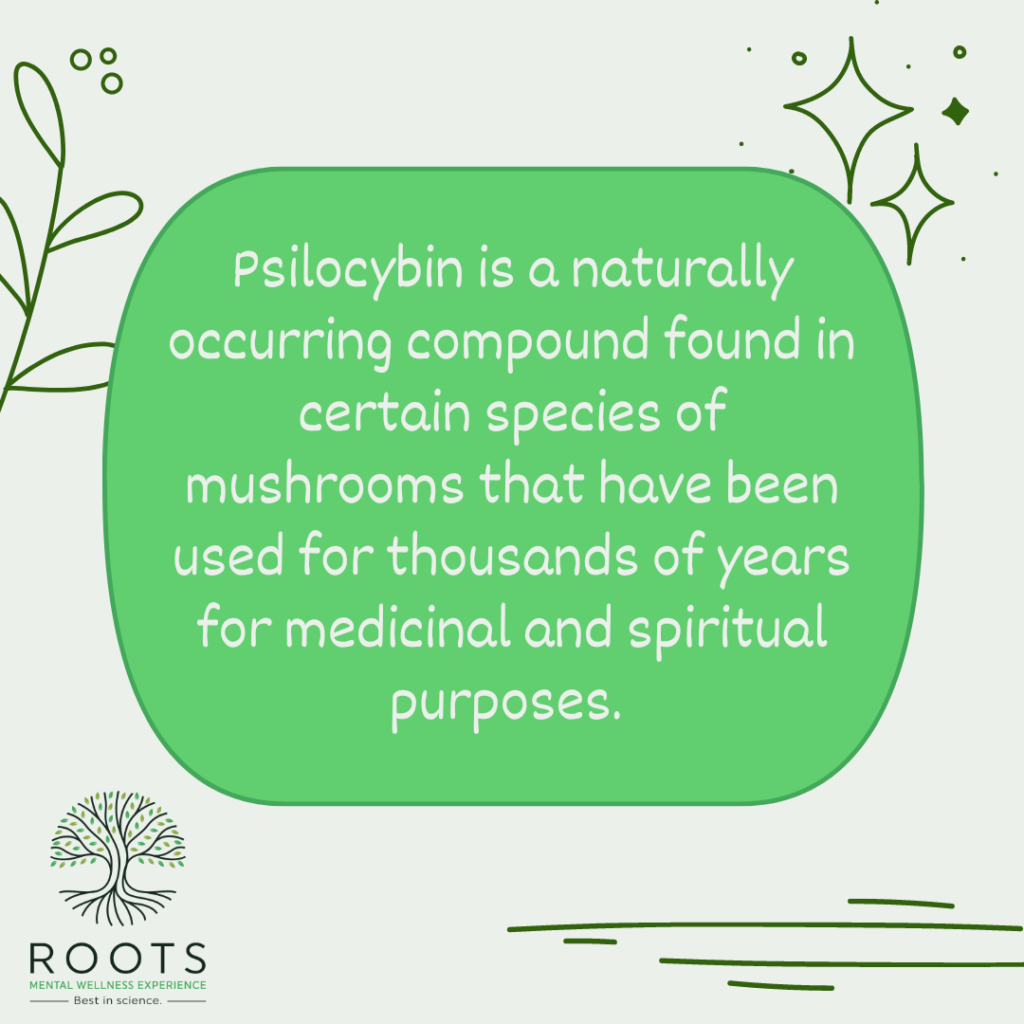
Current Studies
Several studies have been conducted to examine the use of psilocybin to treat depression, and the results have been promising. One study published in the Journal of Psychopharmacology found that a single dose of psilocybin reduced symptoms of depression in a group of patients with treatment-resistant depression. This study involved 21 patients and found that nearly 80% showed significant reductions in depression symptoms one week after receiving psilocybin.
Another study published in the same journal found that psilocybin was associated with significant reductions in symptoms of depression and anxiety in patients with life-threatening cancer diagnoses. In this study, 29 patients received two doses of psilocybin in combination with psychotherapy and reported substantial reductions in depression and anxiety symptoms that persisted for several months after treatment.
These studies suggest that psilocybin may be an effective treatment for depression, particularly for patients who have not responded to other treatments. However, more research is needed to fully understand the safety and effectiveness of psilocybin for the treatment of depression, as well as to determine the optimal dosing and administration strategies for this treatment. Psilocybin is a Schedule I controlled substance in the United States, meaning it is illegal to use, possess, or distribute outside of a clinical setting. Before starting treatment, patients should discuss the potential risks and benefits of psilocybin-assisted therapy with their healthcare provider.
Clinical Trials
In addition to these studies, there have been several ongoing clinical trials to evaluate further the safety and effectiveness of psilocybin for the treatment of depression. For example, one clinical trial explores the use of psilocybin and psychological support for treating depression in patients who have not responded to other treatments. Another clinical trial investigates psilocybin-assisted psychotherapy for treating depression in individuals with major depressive disorder.
It is important to note that while these studies have shown promising results, more research is needed to fully understand the safety and effectiveness of psilocybin for the treatment of depression. Psilocybin is a Schedule I controlled substance in the United States, meaning it is illegal to use, possess, or distribute outside of a clinical setting. Patients should discuss the potential risks and benefits of psilocybin-assisted therapy with their healthcare provider before starting treatment.

Ketamine-Assisted Psychotherapy for Depression
Ketamine-assisted psychotherapy is a form of therapy that involves the use of ketamine, a medication that is typically used as an anesthetic. In ketamine-assisted psychotherapy, the patient is given a low dose of ketamine under the supervision of a trained healthcare provider. Ketamine-assisted psychotherapy aims to facilitate a therapeutic experience that can help the patient process and resolve emotional or psychological issues.
During a ketamine-assisted psychotherapy session, the patient is typically relaxed and receptive, allowing them to access deeper levels of consciousness and engage in a therapeutic experience. The healthcare provider may use guided visualization, mindfulness, or talk therapy techniques to help the patient explore their thoughts and emotions.
How does it work?
The exact mechanism by which ketamine-assisted psychotherapy works to treat depression is not well understood, but several theories have been proposed.
One theory is that ketamine works by rapidly and temporarily reducing activity in certain brain regions that are overactive in depression, such as the glutamate-mediated circuit in the frontolimbic system. This reduction in activity in these brain regions may help to reduce symptoms of depression, such as feelings of hopelessness and sadness, and improve mood.
Another theory is that ketamine may promote neuroplasticity, which is the ability of the brain to change and adapt in response to new experiences and information. This increased neuroplasticity may allow people with depression to gain new perspectives and insights into their experiences and to develop new, more positive ways of thinking and behaving.
Ketamine-assisted psychotherapy is thought to enhance these effects by combining the rapid antidepressant effects of ketamine with the long-lasting benefits of talk therapy. In this type of therapy, a trained therapist works with the patient to process and integrate their experiences under the influence of ketamine, which can help to promote lasting change and improve mental health.
Suicidal Ideation
Ketamine has shown promise in treating suicidal ideation, which is the presence of thoughts or plans to end one’s life. Several studies have found that ketamine may have rapid and powerful anti-suicidal effects, reducing suicidal thoughts and behaviors within hours of administration.
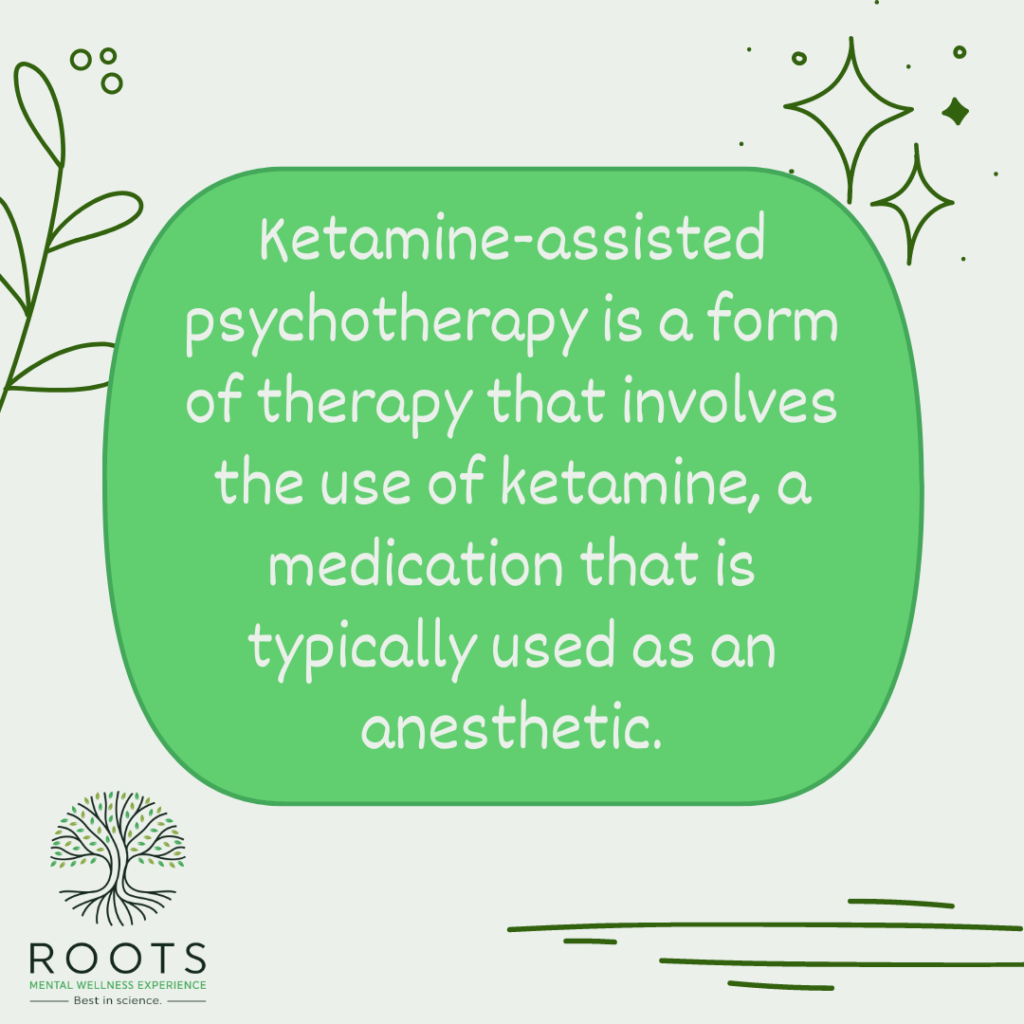
One theory is that ketamine works by rapidly reducing activity in the glutamate-mediated circuit in the frontolimbic system, which is thought to be overactive in depression and suicide. By reducing activity in this circuit, ketamine may help to reduce feelings of hopelessness, despair, and anxiety and improve mood.
Ketamine-assisted psychotherapy is being explored as a potential treatment for suicidal ideation, as it may enhance the rapid anti-suicidal effects of ketamine with the long-lasting benefits of talk therapy. In this type of therapy, a trained therapist works with the patient to process and integrate their experiences under the influence of ketamine, which may help to promote lasting change and reduce the risk of suicide.
Spravato
Spravato (esketamine) is a medication approved for treating depression in adults who have not responded to other treatments. It is administered as a nasal spray and is typically used in combination with an oral antidepressant. Spravato is a brand name for the generic medication esketamine, a form of ketamine.
It is difficult to determine how many people use Spravato, as this information is not publicly available. Spravato is a prescription medication only available through a licensed healthcare provider. To receive treatment with Spravato, individuals must meet certain criteria and be enrolled in a treatment program. Spravato is typically used for individuals who have not responded to other treatments for depression and is not intended for use in everyone with depression.
Mescaline-Assisted Psychotherapy
Mescaline is a psychedelic substance that is found in certain species of cacti, including the peyote cactus. While mescaline has been used in traditional indigenous healing ceremonies for thousands of years, there have been relatively few scientific studies on its use for the treatment of mental health conditions.
In recent years, there has been some interest in exploring the therapeutic potential of mescaline for the treatment of various mental health conditions, including depression, anxiety, and PTSD. However, the number of studies on mescaline for mental health treatment is limited, and most of these studies have been small and inconclusive.
A study published in the Journal of Psychopharmacology in 2020 investigated the effects of a single dose of mescaline on symptoms of depression and anxiety in patients with life-threatening cancer diagnoses. The study involved 29 participants and was designed as a randomized, double-blind, placebo-controlled trial. The study’s results indicated that mescaline was associated with significant reductions in symptoms of depression and anxiety compared to placebo. Specifically, the study found that, after a single dose of mescaline, the average decrease in depression scores was 8.0 points on the Beck Depression Inventory, and the average decrease in anxiety scores was 5.7 points on the State-Trait Anxiety Inventory. These results suggest that mescaline may have the potential as a treatment for depression and anxiety in patients with life-threatening cancer diagnoses. However, it is important to note that more research is needed to fully understand this treatment’s safety and efficacy.

It is also important to note that mescaline is a Schedule I controlled substance in the United States, which means that it is illegal to use or possess mescaline for any purpose, including for the treatment of mental health conditions. Therefore, more research is needed to fully understand the safety and efficacy of mescaline for the treatment of mental health conditions and to determine whether it should be made available for medical use.
Political Issues with Mescaline (Peyote)
There have been concerns among some indigenous communities about the more widespread use of peyote or mescaline for treating mental health issues. Some indigenous people believe that peyote has a spiritual and cultural significance that should not be reduced to its medicinal properties, and that its use for medicinal purposes takes away from its traditional, sacred use.
Additionally, some indigenous communities may be concerned that the widespread use of peyote and mescaline for mental health treatment could lead to further exploitation and degradation of indigenous cultures, particularly if the plants are harvested in unsustainable or culturally insensitive ways.
Furthermore, some indigenous people may be concerned that the wider use of peyote and mescaline could lead to a loss of cultural control over these substances. For example, if the use of peyote or mescaline becomes more widespread, there may be greater pressure to regulate or even criminalize the use of these substances, which could have unintended consequences for indigenous communities.
In general, it is crucial to approach the use of peyote and mescaline for mental health treatment with sensitivity to the cultural and spiritual significance of these substances for indigenous communities and to work with indigenous peoples to ensure that any use of these substances is done in a culturally appropriate and sustainable manner.
Synthetic Mescaline
Cultural and political issues are some of the reasons why companies have started synthesizing mescaline. In addition to the political and cultural issues associated with using peyote, synthesizing mescaline could offer a more controlled and consistent supply of the substance, making it easier to conduct clinical trials and research its therapeutic potential.
It’s also worth noting that synthesizing mescaline has its challenges and limitations. For example, the synthesized substance may not have the same effects as naturally derived mescaline, and there may be questions about the quality and purity of the synthesized substance. Additionally, the production of synthesized mescaline can be expensive and resource-intensive, limiting its accessibility and affordability.
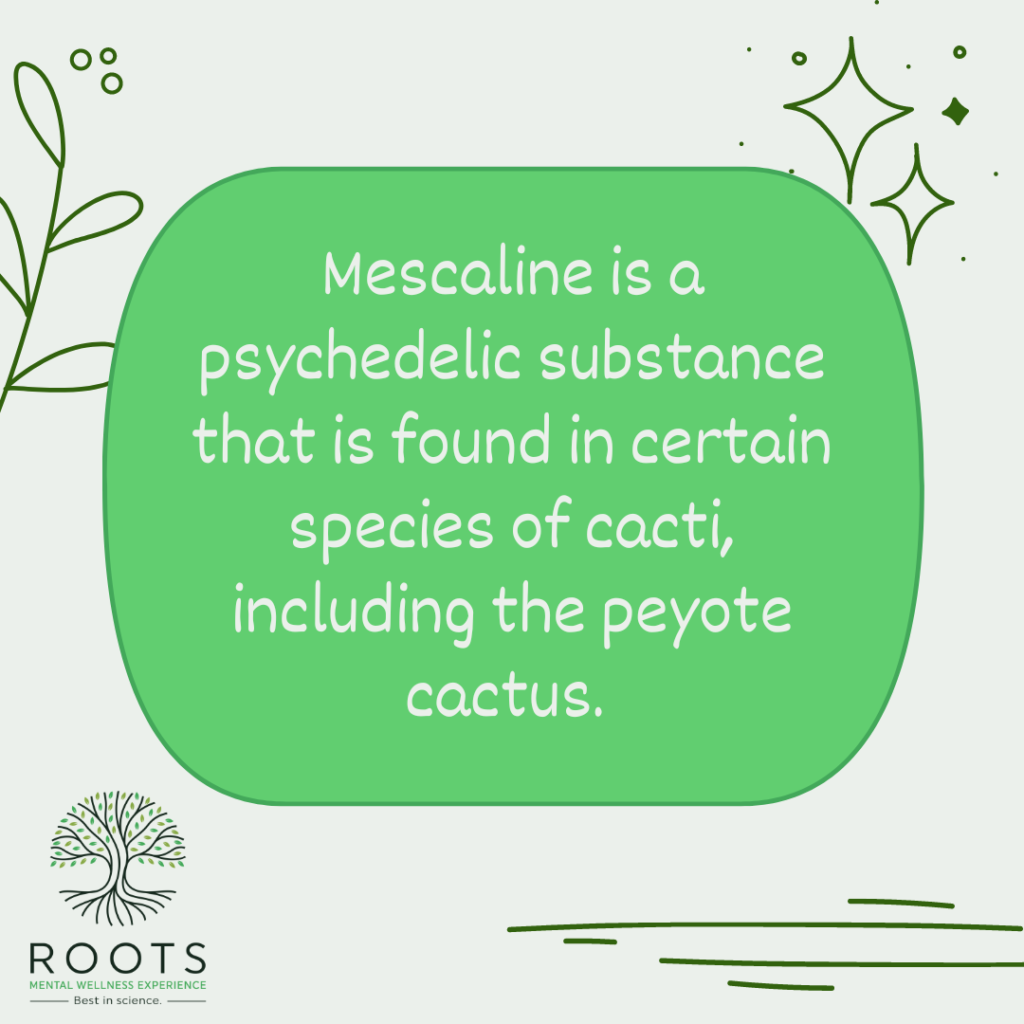
Overall, the use of synthesized mescaline in the treatment of mental health is a complex issue that involves many different factors, including cultural and political considerations, scientific and medical questions, and issues of accessibility and affordability.
LSD-Assisted Psychotherapy
LSD, or lysergic acid diethylamide, is a powerful psychedelic substance that has been studied for its potential use in treating various mental health conditions, including depression, anxiety, and post-traumatic stress disorder (PTSD). In some studies, LSD has been shown to have a rapid and lasting impact on symptoms of these conditions, and it has been used in some clinical trials to evaluate its potential as a treatment.
How it works
The exact mechanisms of action of LSD in the treatment of mental health conditions are not yet fully understood. However, some researchers believe that the effects of LSD on the brain and mind could play a role in its therapeutic potential.
One theory is that LSD may help reset the brain’s default mode network, which is a network of brain regions active when the mind is at rest. This network has been implicated in developing several mental health conditions, including depression and anxiety. By resetting the default mode network, LSD may help to reduce symptoms of these conditions.
Another theory is that LSD may help to increase plasticity in the brain, which is the brain’s ability to change and adapt. This increased plasticity could lead to changes in how the brain processes information, which could help reduce symptoms of mental health conditions.
It is also believed that LSD may affect the levels of certain neurotransmitters, such as serotonin, in the brain. Serotonin is a key neurotransmitter that regulates mood, anxiety, and other psychological processes. By affecting the levels of serotonin, LSD may help to regulate mood and reduce symptoms of depression and anxiety.
While these theories are promising, much more research is needed to fully understand the mechanisms of action of LSD in the treatment of mental health conditions. This includes understanding the specific effects of LSD on the brain and the optimal dosing and administration strategies for LSD-assisted therapy.
Clinical Studies
In recent years, several studies have been conducted to evaluate the potential of LSD in treating mental health conditions, including depression, anxiety, and PTSD. One study published in the Journal of Psychopharmacology found that a single dose of LSD was associated with a rapid and sustained reduction in symptoms of depression in patients with treatment-resistant depression. Another study published in the same journal found that LSD effectively reduced anxiety symptoms in patients with life-threatening cancer diagnoses.
In addition to these studies, several clinical trials have been conducted to further explore the safety and efficacy of LSD in the treatment of mental health conditions. For example, one pilot study conducted in the 1990s found that LSD-assisted psychotherapy led to significant improvements in symptoms of PTSD in a group of patients with the condition. Another recent pilot study found that LSD-assisted psychotherapy was associated with significant reductions in symptoms of depression and anxiety in patients with life-threatening illnesses.
While these results are encouraging, it is important to note that much more research is needed to fully understand the safety and effectiveness of LSD in the treatment of mental health conditions. Currently, LSD is not approved by regulatory agencies such as the US Food and Drug Administration (FDA) for the treatment of any mental health condition, and its use in clinical settings is heavily regulated.

